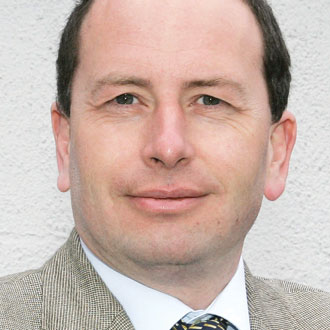I’m no Kate Moss, but I don’t need to lose weight to help my patients

Two years ago, I tried to engage one of my obese patients in a conversation about her weight. It was a conversation I’ll never forget. We went back and forth on the issue, until she remarked tartly: ‘Not exactly Kate Moss yourself, are you doctor?’
The reason I’ll never forget is not because I felt offended or embarrassed, but because the patient recently passed away, suffering fulminating heart failure at a BMI of 50.
But she had a point – I certainly wasn’t a picture of health at the time. And lots of GPs carry extra weight – a recent Pulse survey found one in four GPs is overweight, despite knowing the risks involved.
When I first became a father, I was asked to record my weight as part of my application to renew my life insurance. At that point, I had given up on my favourite exercise (squash) and a once-sensible diet had turned into a steady stream of midnight pizza, thanks to red-eye shifts at the local out-of-hours service.
At the doctor, I reported being 14st 7lb. Turns out I was 17st 2lb.
Luckily, that weigh-in acted as a wake-up call for me. I’m now around 15 stone 7lb – but if I had continued to gain weight at the average population rate since that appointment, I would now weigh 24 stone.
Despite my efforts to stay trim, however, my BMI is 29.9, which puts me in the ‘overweight’ category for a man of my height.
Earlier this year, NHS England decided to incentivise staff to eat healthier and lose weight, in order to set an example for other organisations. Mr Stevens had lost three stone in three years after his former US employer enrolled him on an incentive scheme .
I’m sure I’m not the only GP who’d love to get paid to lose weight – but just imagine the Daily Mail headlines.
A GP who got the hang of ‘yo-yo dieting’ could repeatedly claim incentives – a welcome way, perhaps, to offset years of sub-inflation pay rises. But jokes aside, GPs should not be incentivised to lose weight. Sure, subsidise healthy eating and gyms, but don’t pay us to eat healthily.
Voice of experience
There is no convincing evidence that a consultation on weight is any less successful if the healthcare provider also has a weight problem. A small qualitative study in 2013 did claim that healthy-weight GPs who are willing to discuss their own lifestyles with patients command greater respect when giving advice.1 Another suggested that patients of all sizes mistrust overweight doctors, and are likely to seek help from an alternative provider.2 Meanwhile, a 2012 study found normal-weight GPs feel more confident about offering weight-loss advice than their obese counterparts.3
But this advice is not compelling and some studies have shown that advice given to patients on diet is received better from overweight GPs.4 And the anecdotal experience is positive that an overweight healthcare professional has not only the knowledge, but the personal experience, to help patients combat excess weight.
Most people who know me – patients and GPs alike – are aware that I have struggled with my weight and I find that my patients generally tend to listen to my advice because I am slightly overweight, not in spite of that fact.
The truth is, I am more likely to hear complaints about how young ‘pencil-thin’ dietitians ‘who have never experienced weight problems’ can’t empathise with obese middle-aged people.
GPs who are overweight or obese should lose weight for exactly the same reasons that our patients should: to avoid diabetes, hypertension, dyslipidaemia, sleep apnoea, fatty liver and painful knees.
But while I congratulate Mr Stevens on his own weight loss, as NHS chief executive he should already know that his anecdotal weight loss study of n=1 should not provide the sole evidence for a weight-loss campaign for the entire healthcare profession.
Dr David Haslam is a GPSI in obesity in London and chair of the National Obesity Forum
References
1 S Fraser, M et al. Patients’ perceptions of their general practitioner’s health and weight influences their perceptions of nutrition and exercise advice received. J Prim Health Care. 2013;5:301-7
2 R Puhl et al.The effect of physicians’ body weight on patient attitudes: implications for physician selection, trust and adherence to medical advice. Int J Obes. 2013;37:1415-21
3 S Bleich et al. Impact of physician BMI on obesity care and beliefs. Obesity. 2012;20:999-1005
4 S Bleich et al. How does physician BMI impact patient trust and perceived stigma? Prev Med. 2013;57:120-4
Visit Pulse Reference for details on 140 symptoms, including easily searchable symptoms and categories, offering you a free platform to check symptoms and receive potential diagnoses during consultations.



 Oviva’s fully remote Tier 3 Weight Management programme
Oviva’s fully remote Tier 3 Weight Management programme





